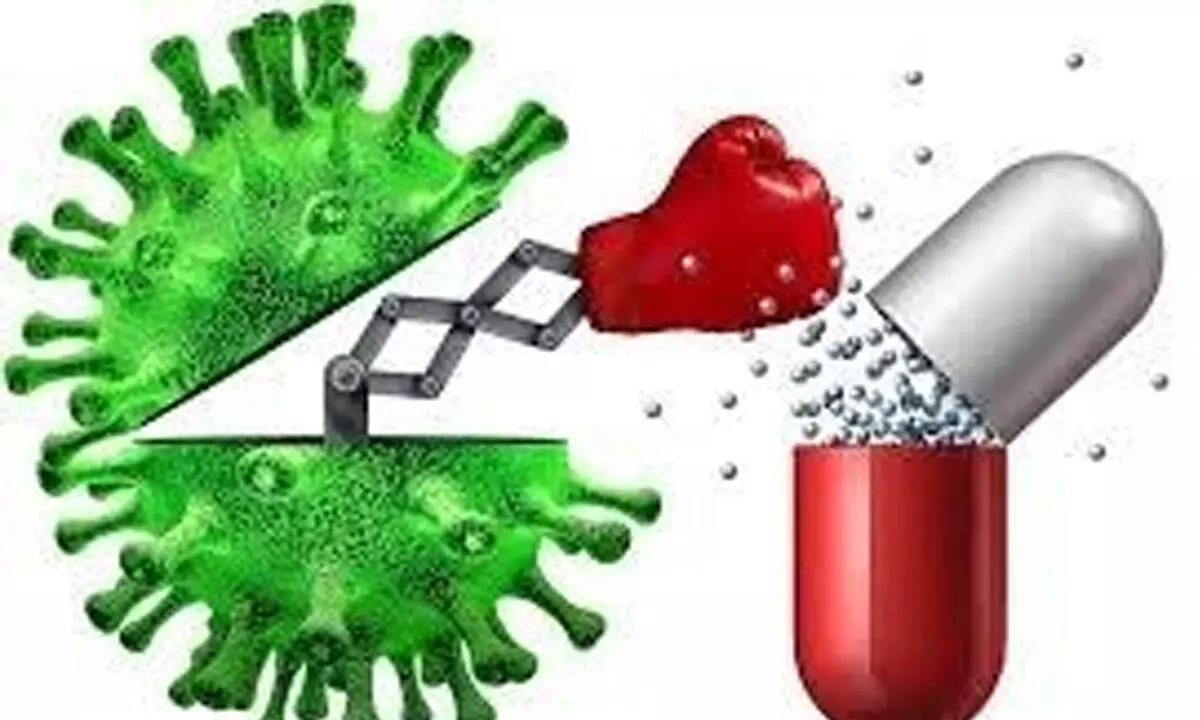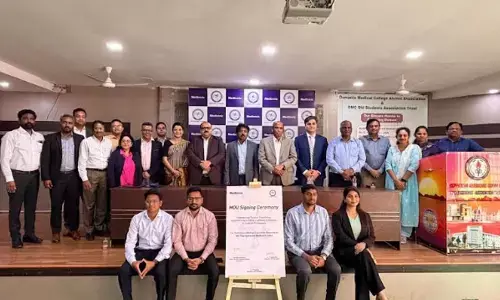Pivotal shift in move to tackle AMR

The world has finally decided to move with fresh impetus in its fight against the “silent pandemic” – antimicrobial resistance (AMR). At a high-level meeting of the ongoing United Nations General Assembly 2024, the world body has presented a political declaration that heralds a major shift in the global response to the crisis of AMR – by moving the focus on to ‘prevention’ in agri-food systems.
The world has finally decided to move with fresh impetus in its fight against the “silent pandemic” – antimicrobial resistance (AMR). At a high-level meeting of the ongoing United Nations General Assembly2024, the world body has presented a political declaration that heralds a major shift in the global response to the crisis of AMR – by moving the focus on to ‘prevention’ in agri-food systems.
The political declaration by United Nations General Assembly (UNGA) antimicrobial resistance (AMR) focuses now on ‘prevention’ in agri-food systems, something that CSE has been calling for. “The declaration is a huge step ahead,” says Sunita Narain, director general, Centre for Science and Environment (CSE) and member, Global Leaders Group (GLG) on AMR. She was among the global leaders who addressed the meeting. “We are pleased to note the text related to agriculture and animal health. It very well recognises the need and importance of preventive measures, which is the best bet for low- and middle-income countries which otherwise cannot afford the cost of containing AMR,” she said.
Compared to the political declaration of 2016, this declaration marks a big positive shift in the way the world wants to address AMR from agri-food systems. It is a huge step forward. It shows that there is political leadership and global leadership for an issue that will need global cooperation for action. AMR is increasingly being recognised as one of the biggest threats to global public health, and is expected to disproportionately impact low-and middle-income countries. Existing antibiotics are becoming ineffective, the pipeline of new antibiotics is near-dry, and access to both old and new antibiotics is a big concern.
What says the declaration
The text under the agriculture and animal health section of the declaration clearly acknowledges the need to prioritise and fund the implementation of measures to prevent and control infections and ensure prudent antibiotic use such as through promoting good animal husbandry practices, agriculture practices and animal health.
It outlines key drivers that lead to inappropriate use of antimicrobials in animals and plants, and encourages prudent and responsible use of antimicrobials, when used prophylactically by adopting an ambitious, incremental and country-specific approach. “In a first, the need for ambitiously moving towards prudent and responsible use of antimicrobials when used for the purpose of disease prevention is acknowledged at this level,” said Amit Khurana, director, sustainable food systems programme of CSE.
“Despite being a big concern, such non-therapeutic use and chemical-based prevention had failed to receive adequate attention at the global level so far. We are pleased to note the change in narrative,” he added. The text also recognises the impact of antibiotic growth promoters on antimicrobial resistance and the need to phase out the use of medically important antibiotics for growth promotion. The world appears to agree more on the need to conserve critically important antibiotics for human health atleast by not allowing their use as growth promoters in animals.
The declaration also commits to strive to ‘meaningfully reduce’, by 2030, the quantity of antimicrobials used globally in the agri-food system from the current level by taking into account national contexts and by investing in animal and plant health, reducing the need for and inappropriate use of antibiotics, investing in and promoting alternatives, stewardship and animal health systems. This was only the second time that the global response to the crisis of AMR was discussed in the UNGA. The theme of the meeting was ‘Investing in the present and securing our future together: accelerating multi-sectoral global, regional and national actions to address antimicrobial resistance.
Earlier, in April 2024, the Global Leaders Group on AMR had proposed two targets -- by 2030, reduce the quantity of antimicrobials used in the agri-food system globally by at least 30-50 per cent from the current level; by 2030, eliminate the use of medically important antimicrobials for human medicine in animals for non-veterinary medical purposes, or in crop production and agri-food systems for non-phytosanitary purposes.
In her address to the world community gathered at the UNGA, Narain said: “AMR will require us to rethink the ways in which we do agriculture, the way environment is managed so that we can minimise impact.
This is where our agendas of conservation, development, environment and most importantly, prevention, have to come from.” “Nobody is safe until everybody is safe,” she added. “This is what underpins the political declaration that we have been part of, and which we now need to act on. This silent pandemic is a war we must win.” (CSE)

















